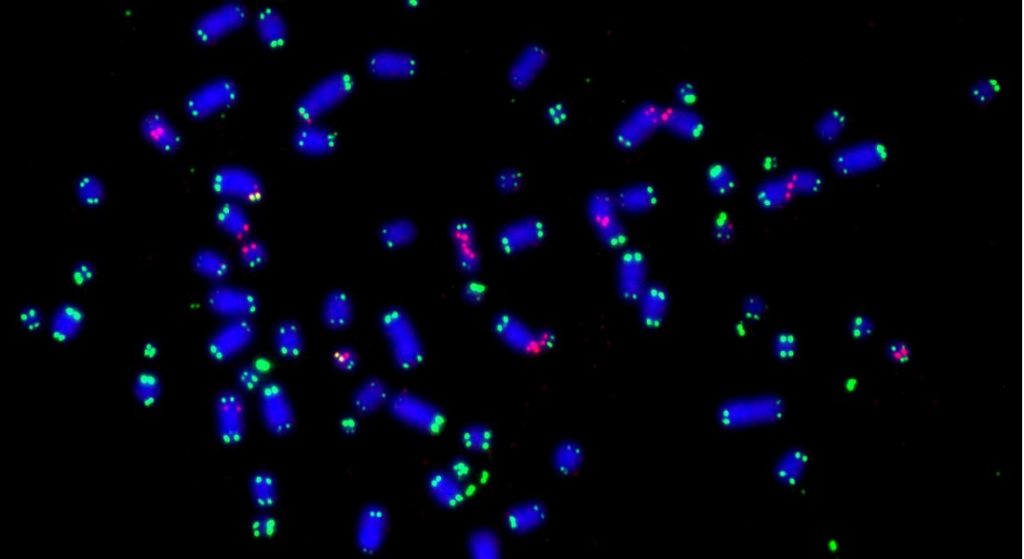Researchers from CCS discover a special protein with important functions in cancer cell division
A special protein named RTEL1 has proved to have two important functions in cell division in human cancer cells. In collaboration with American researchers, a group of researchers from the DNRF Center for Chromosome Stability (CCS) at the University of Copenhagen uncovered these functions in a new study. The study is partly based on a discovery from the Center of Excellence in 2015. The result was recently published in the scientific journal Nature Structural & Molecular Biology.

Proteins play a central role in cell division in human cells. During the division process, the cell undergoes several phases, and two, in particular, are very important: the so-called S-phase, where the cell’s DNA is duplicated, and the phase called mitosis, where the duplicated DNA is equally divided into the two new cells.
Normal cells have a limited amount of cell divisions, but with cancer cells, things go wrong, resulting in more and uncontrollable cell divisions. In a new study, researchers from the DNRF’s center CCS at the University of Copenhagen and research colleagues from the US have uncovered two important functions in a special protein called RTEL1 during cancer cell division.
“We discovered RTEL1 has two key functions. In the S-phase, RTEL1 can prevent damaging clashes between the processes of DNA replication and transcription (when RNA is made), which otherwise can cause DNA damage and chromosome instability. It does this by ‘ironing out’ certain unusual structures that can form between DNA and RNA called R-loops. The second feature is that RTEL1 promotes a process called MiDAS, which is very common in cancer cells and happens in mitosis,” said Ying Liu, associate professor at CCS and senior author behind the study.
MiDAS, which stands for “mitotic DNA synthesis,” is a cellular process that happens early on during mitosis. Here, MiDAS helps the cell finish the DNA replication that is not completed in the S-phase in the cell division.
“If MiDAS cannot take place, it leads to cell death or mutations in the surviving cells. In the case of cancer, this means that the cancer cell has the potential to become even more abnormal due to the new mutations,” said Liu.
Surprisingly big effect
MiDAS was discovered at CCS in 2015 in a study led by professor and head of center Ian Hickson. The new study, which was recently published in Nature Structural & Molecular Biology, is thus a continuation of the discovery of MiDAS back in 2015.
“Our earlier data showed that cancer cells utilize this unusual form of DNA replication far more often than normal cells because cancer cells have a lot of ‘replication stress’ in the S-phase due to the cell division cycle being perturbed by the over-activity of cancer-causing genes called oncogenes,” said Professor Hickson.
With the new research, Associate Professor Ying Liu and the rest of the research team took it one step further after the discovery of MiDAS and carried out experiments with a focus on different types of cancer cells, including bone cancer, cervical cancer, and colon cancer. It was here, to the researchers’ surprise, that they found that the protein RTEL1 had two central functions in cell division in cancer cells.
“We investigated which proteins help cancer cells to use MiDAS. And then this protein, RTEL1, came up, which was a surprise. We did not expect it had such a big effect,” said Liu. She added:
“We believe that this RTEL1 function is critical for any cancer cells that rely on MiDAS, which is more than 80 percent of the known cancer types based on our knowledge. Therefore, we can use this to design drugs to inhibit RTEL1 and hopefully selectively kill cancer cells.”
Read the scientific article from CCS in Nature Structural & Molecular Biology here
You can find more information about the study in a press release from CCS here
